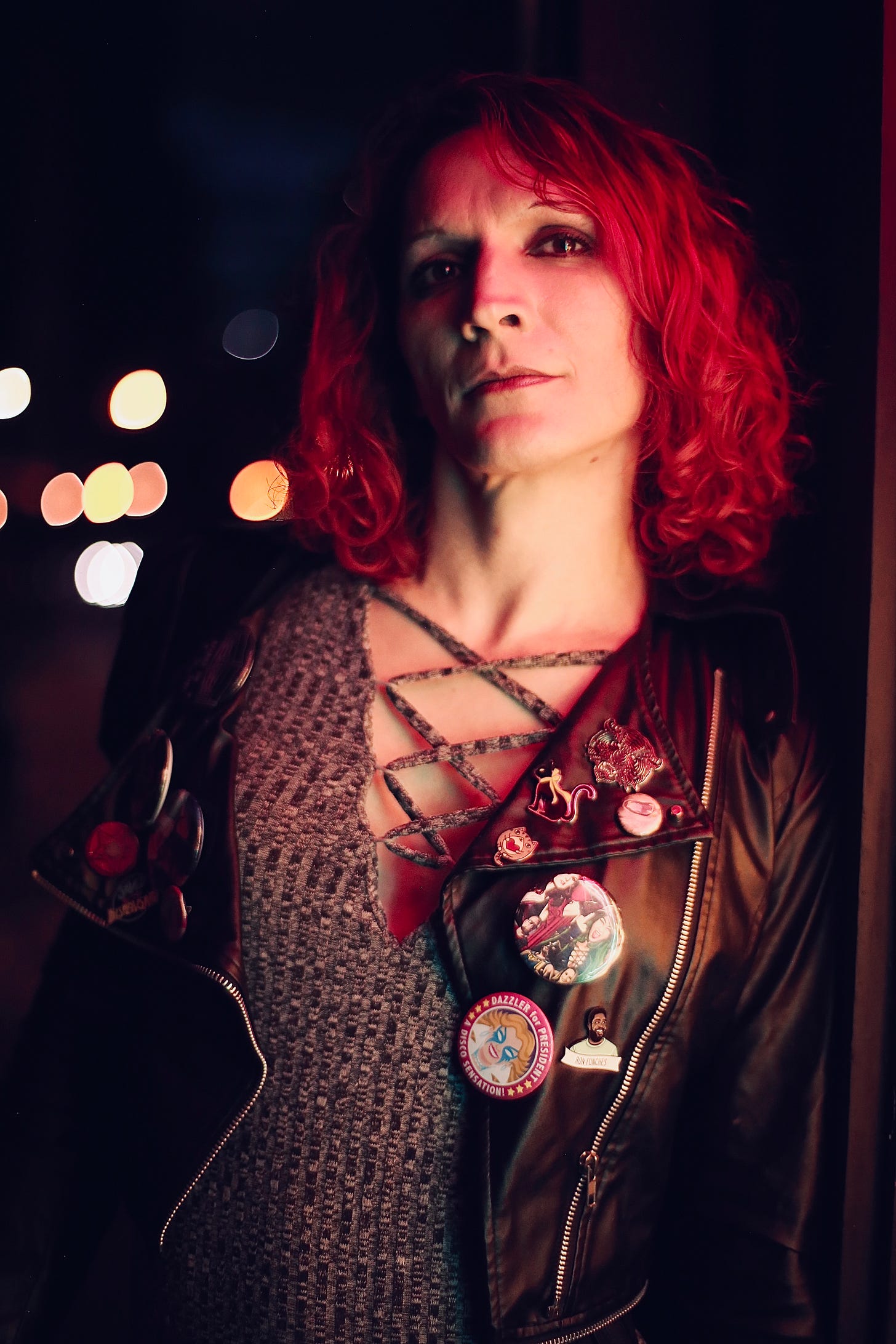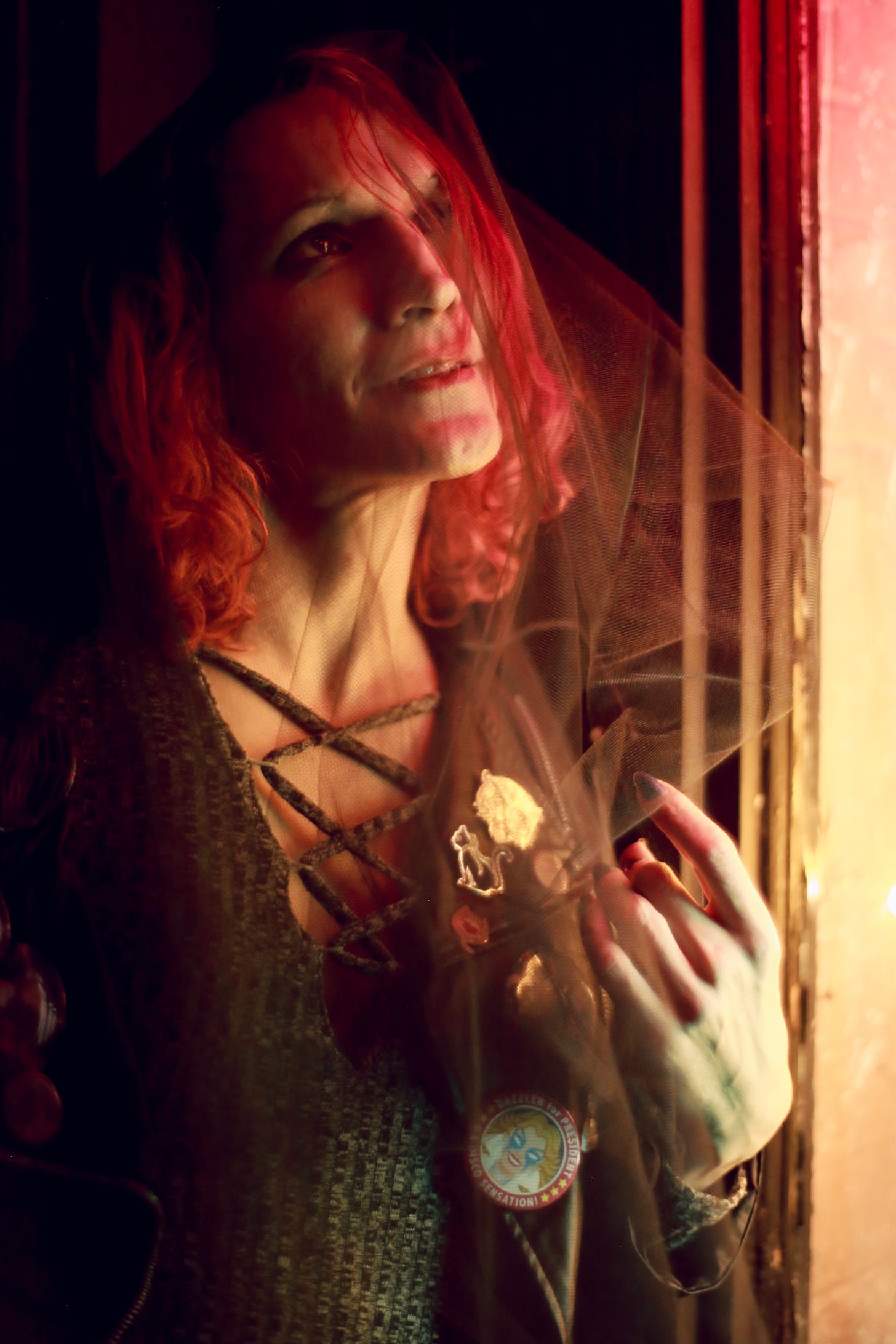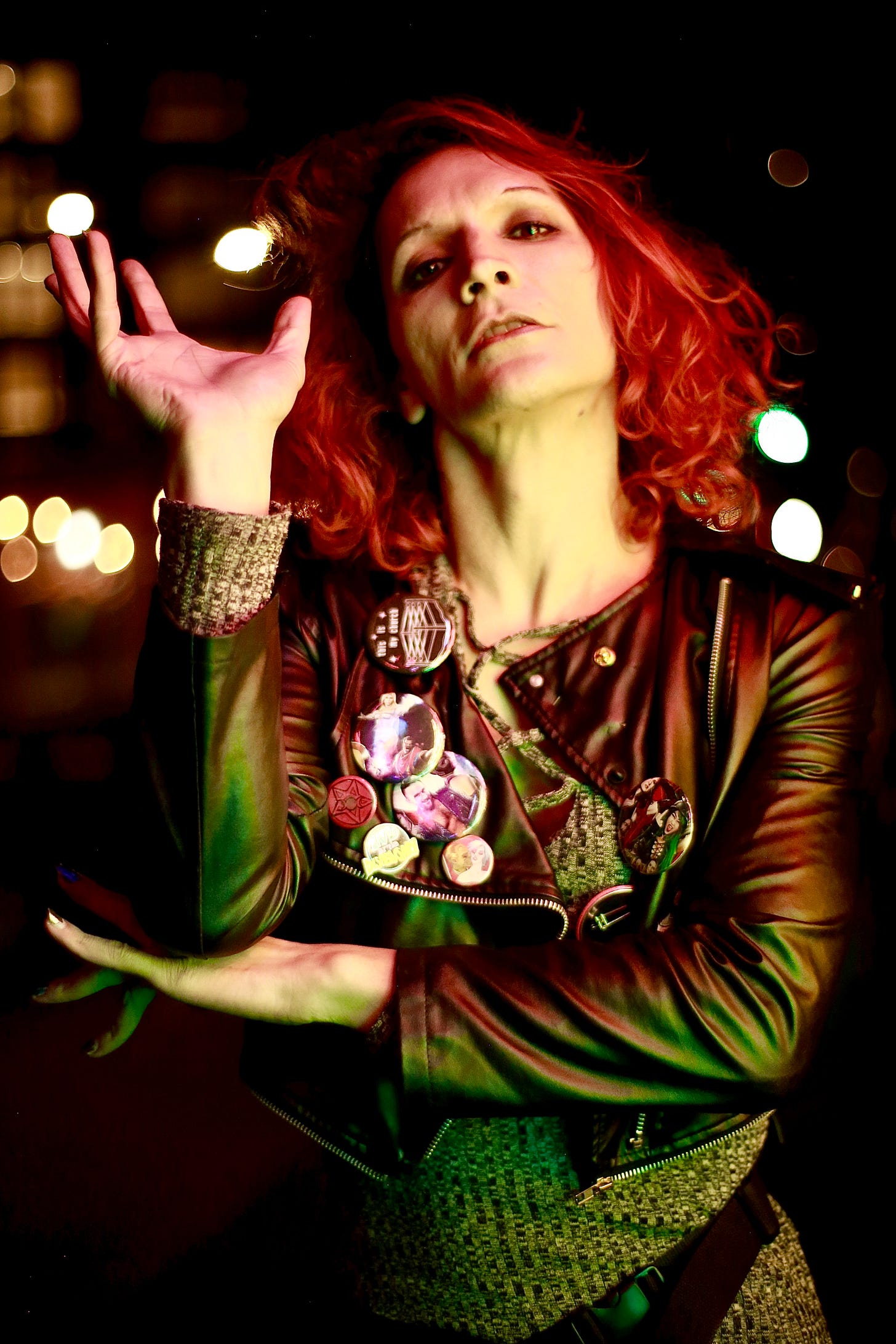In the dark borderlands between Tribeca and Chinatown, New York City, where the streets are littered with spray-painted guerrilla "AEW On TNT" advertisements and the air is neon, Dark Sheik visits after dusk.
In a leather jacket that complements my own, she tells me that contemporary wrestling is building on graveyards. She is liberated by darkness, and raising spirits, in every sense of the phrase. Bringing life back.
I ask her if she's a prophet or a shepherd.
"I don't want to ever call myself a prophet. I am a high priestess of the church of wrestling."
She explains to me the ar-chetype of the "sheik" across generations and across levels of notoriety in professional wrestling. As an Iranian woman, and a student of the grand tradition of wrestling, she has seen many incarnations of "sheiks," played by many ethnicities of wrestlers (not just Middle Eastern performers). Oftentimes, it just has to be a guy with a beard.
For Dark Sheik, what was borne of a pre-prescribed role foisted onto her early in her career has become a full embodiment and a reclamation. One that no longer causes her to hang her head in shame in the presence of an audience.
Promoters hated that she managed to turn a foreign, criminal-coded villain into a face, but isn't that the way?
After all, Dark Sheik engages with light and dark, a voice from the void, the unknown.
"When it's nighttime, you turn off all the lights and you're going to bed, and there's that spooky hallway. We pick up our phone just to light the way, even though we know how many steps it is to our door. […] People don't want to step into the darkness, We never have to listen to that voice."
She advocates for a world free of self-soothing distraction, one free of idol-worship, one that beckons self-reflection, one that is absolutely earth-shatteringly and transformatively scary, but family-friendly nonetheless.
"Flowers have thorns.”






